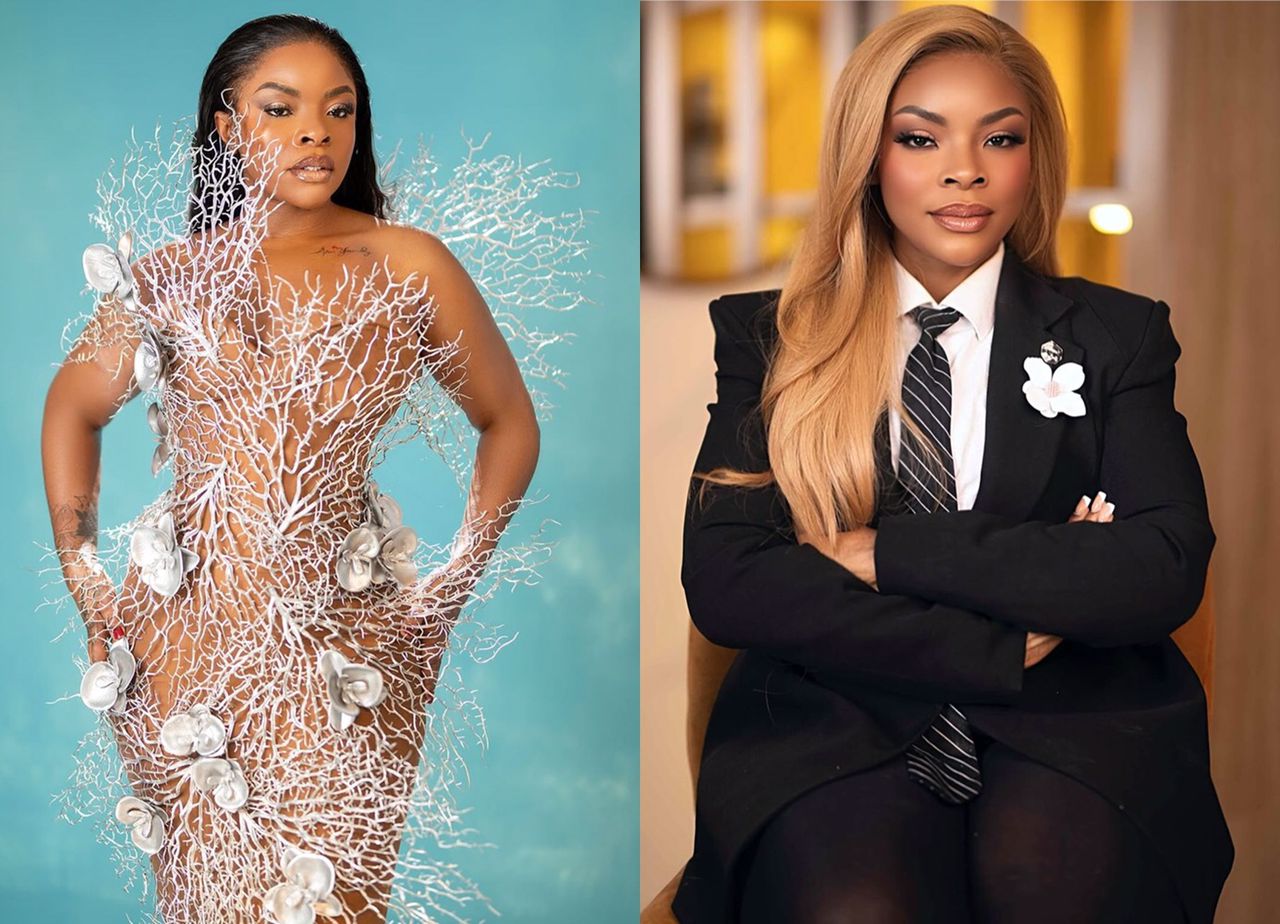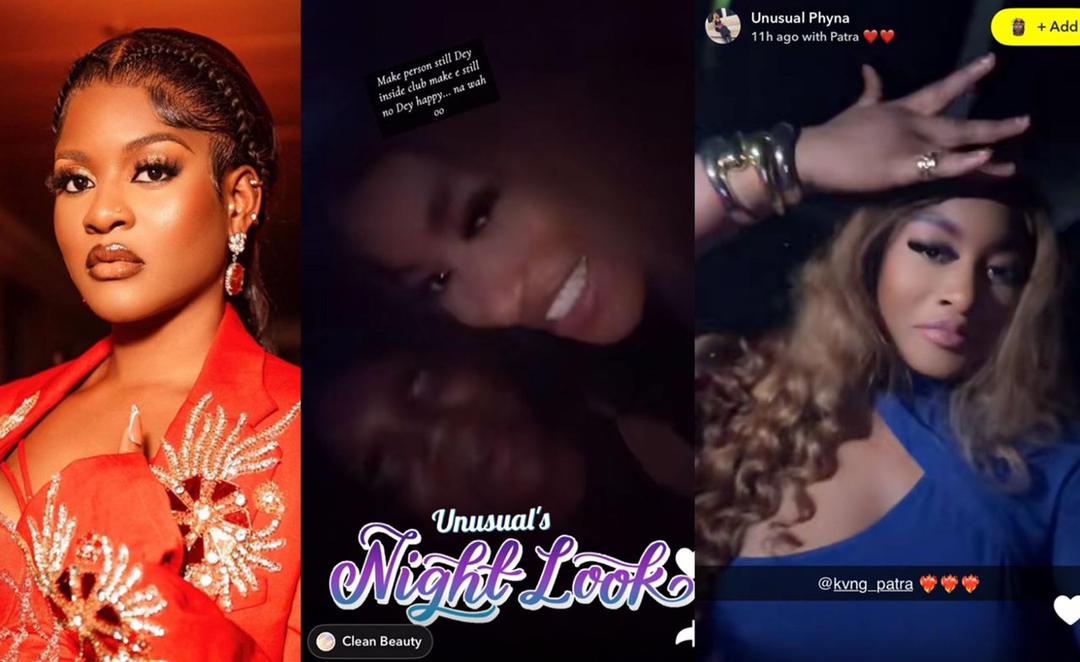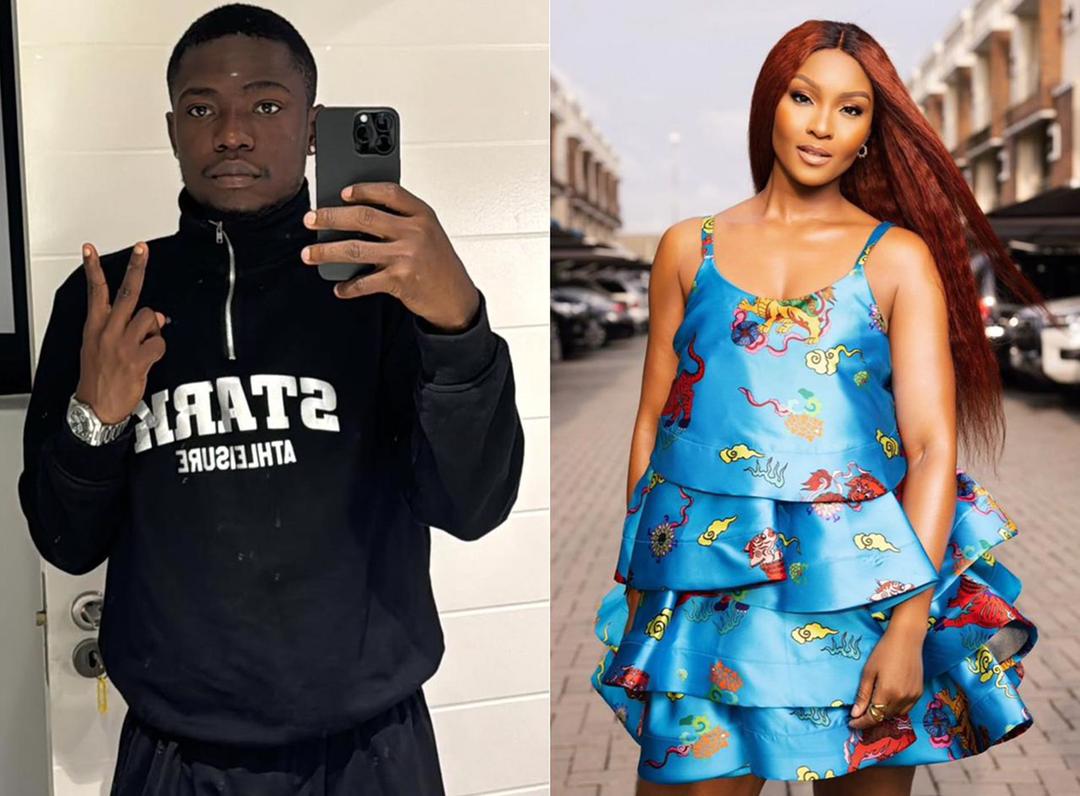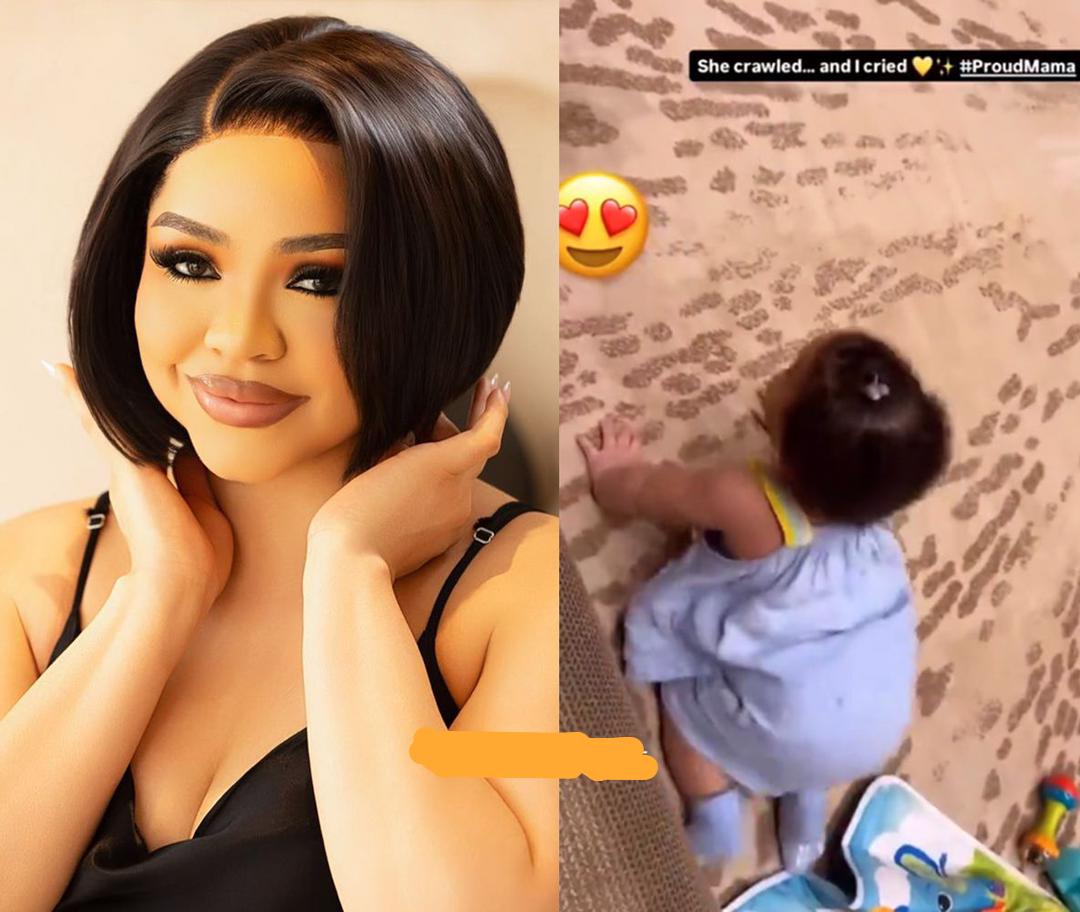
“How Do You Still Sleep With Them?” – Laura Ikeji Sparks Outrage with Blunt Question to Women in Abusive Marriages

Social media influencer and entrepreneur, Laura Ikeji, has stirred up intense debates online following her controversial remarks aimed at women in abusive marriages who continue to have sexual relations with their abusive partners and even go on to have more children.
In a blunt and emotionally charged statement posted on her verified Instagram account, Laura questioned the logic and emotional state of women who remain intimately involved with men who subject them to physical violence. Her exact words—“How do you have sex with these men after they’ve beaten you?”—have triggered widespread reactions across social media, with netizens split between applauding her brutal honesty and condemning her for what some describe as insensitivity toward victims of domestic violence.
Laura’s post was as piercing as it was unfiltered. Known for her bold personality and candid takes on social issues, the fashion entrepreneur didn’t mince words. She expressed disbelief that some women, despite being physically and emotionally battered, still maintain sexual intimacy with their abusers.
The deeper jab came when she added that some of these women even get pregnant again by the same men who have assaulted them. The post, shared with her over a million Instagram followers, was accompanied by an emoji-laced caption and a head-shaking tone that sparked a firestorm within minutes.
“Please I really want to understand. After he beats you black and blue, breaks your spirit, shatters your heart and body, you still open your legs for him? And then you get pregnant again? Nah, make it make sense!” she wrote.
The comment section of her post quickly became a battleground of perspectives. Some praised Laura for having the courage to speak about a painful reality many prefer to sweep under the rug. They argued that too many women normalize abuse in the name of marriage, and the cycle continues because no one dares to say the uncomfortable truth aloud. Others, however, didn’t take it so lightly. Critics accused her of victim-blaming and ignoring the complex psychological and economic traps that keep women tied to abusive partners.
One user commented, “You clearly don’t understand trauma bonding or the fear of starting over with kids and no support. It’s not about opening legs. It’s about survival.” Another wrote, “Yes, it sounds harsh, but sometimes the harsh truth is what we need. If a woman can still lie in bed with a man that brutalized her, she needs therapy, not judgment.”
Interestingly, Laura Ikeji has not responded to the backlash directly, choosing instead to post more content on her page, seemingly unfazed. Her silence has been interpreted by some as a refusal to backtrack, while others believe it reflects a level of emotional detachment from the serious implications of her words.
This is not the first time Laura Ikeji has courted controversy with her unfiltered opinions. From body enhancement advocacy to marriage advice and money talk, she has often positioned herself as someone who says what others are afraid to say. Whether her words come from a place of concern or a desire to spark attention remains a matter of public interpretation. Still, in this case, her blunt question has opened up a broader conversation about the nature of abuse, the complexities of trauma, and the harsh realities many women face in silence.
Experts have weighed in, too. A Lagos-based psychologist, Dr. Ijeoma Ayodele, noted that Laura’s question, while seemingly insensitive, reflects a misunderstanding of how trauma and manipulation work. “Many women in abusive relationships suffer from trauma bonding. This means that despite the abuse, they develop emotional attachments to their abusers. It’s a psychological trap. It’s not as simple as ‘why are you still sleeping with him?’ These women need support, not shame,” she said.
However, others argue that brutal honesty sometimes acts as a wake-up call. “I understand the backlash, but sometimes people need that shock factor to realize the absurdity of what they’ve normalized. If a man beats you and you’re still having sex with him, something is deeply wrong. That needs to be confronted,” said relationship coach, Fola Adebayo.
Social media continues to amplify voices like Laura’s—unfiltered, raw, and ready to stir waters. Whether this leads to change or just outrage remains to be seen. What is undeniable, though, is the frequency of abusive relationships and the silence that often cloaks them. According to a 2024 report by Nigeria’s Ministry of Women Affairs, one in three Nigerian women have experienced domestic violence in their lifetime, with a significant number still living under the same roof as their abuser due to financial dependence, societal pressure, or emotional manipulation.
For some observers, Laura’s question is not an attack—it’s a cry of disbelief at a system that has conditioned women to accept violence as love, control as protection, and silence as dignity. For others, it's an example of why conversations around abuse should be led with empathy and informed understanding, not incredulous questioning.
The debate rages on, with new voices entering the conversation daily. Victims of abuse, activists, therapists, influencers, and everyday citizens are sharing their thoughts, experiences, and anger. One thing is clear: Laura Ikeji’s post has struck a nerve, not because the question hasn’t been asked before, but because it was asked so publicly, so plainly, and without filters.
In the end, whether her message is viewed as harsh truth or reckless insensitivity, it has done what few Instagram posts do—spark a necessary, uncomfortable, and overdue national conversation. A conversation that might just help one woman somewhere see the red flags for what they are and walk away before the cycle repeats. Or perhaps, it will simply add to the noise that surrounds social media without offering real solutions. Either way, Laura has spoken—and Nigeria is listening.


